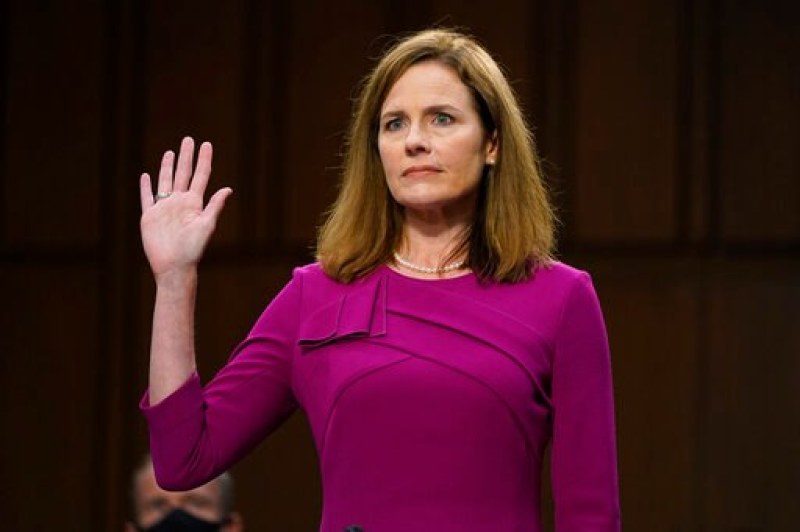
Joe Carter, Editor for The Gospel Coalition and Executive Pastor of the McLean Bible Church of Arlington, Virginia, explains the somewhat vague "Don't Ask, Don't Tell" approach to abortion that many modern Pro-Life Politicians exhibit.
In light of the nomination of Judge Amy Coney Barrett to the position of Supreme Court Justice, Carter questions how we can be sure of the stance that politicians will take on important cases and decisions such as Roe v. Wade. Carter references the recent debates between Trump and Biden, as well as Pence and Harris. When asked about their stances on Roe v. Wade, both Harris and Pence seemingly avoided the question as Pence started addressing a question asked to Trump earlier, and Harris only mentioned her support for a woman to "make a decision about her own body."
While both the Presidential candidates' and Vice Presidential Candidates' stances on abortion are very clear to the public, the beliefs of Republican Justices seems to be muddled. In his last debate, Pence mentioned this in regards to Justice Nominee Barrett, "[I would] never presume to judge how Amy Coney Barrett would rule on the Supreme Court of the United States, but we'll continue to stand strong on the right to life." Trump had said just as much during his debates and interviews, despite promising in 2016 "The justices that I am going to appoint will be pro-life."
At this point in time, Barrett has therefore only refrained from commenting her stance on abortion and Roe v. Wade, and the President has also abstained from inquiring about said position, adopting a kind of "Don't Ask, Don't Tell" approach. This approach stems from Canon 3(A)(6) of the Code of Conduct for the United States, which explains that a "judge should not make public comment on the merits of a matter pending or impending in any court." While there are exceptions in the Canon for certain matters, such as well known Supreme Court cases like Roe v. Wade, Carter informs that not a single of the appointed Republican Justices have clearly stated their positions on abortion to pro-life politicians.
However, Senator Josh Hawley from Missouri has in the past told the Washington Post that he would not support or vote for a Supreme Court nominee unless they publicly declared their position on abortion. Hawley has since redacted his previous statement and has come out to say that he does not require Barrett to state her stance. Rather, Hawley now believes it best to look to Barrett's previous court rulings and cases as evidence of how she would respond to Roe v. Wade. Carter, on the other hand, is in support of Hawley's original sentiments. As Carter wrote in his article to the Gospel Coalition, Pro-life Senators "should adopt Sen. Hawley's abandoned standard of refusing to support any nominee who won't openly agree to defend the rights of the unborn. When it comes to questions about abortion, judicial nominees should "let your 'Yes' be 'Yes,' and your 'No,' 'No.' For whatever is more than these is from the evil one." (Matt. 5:37)


















